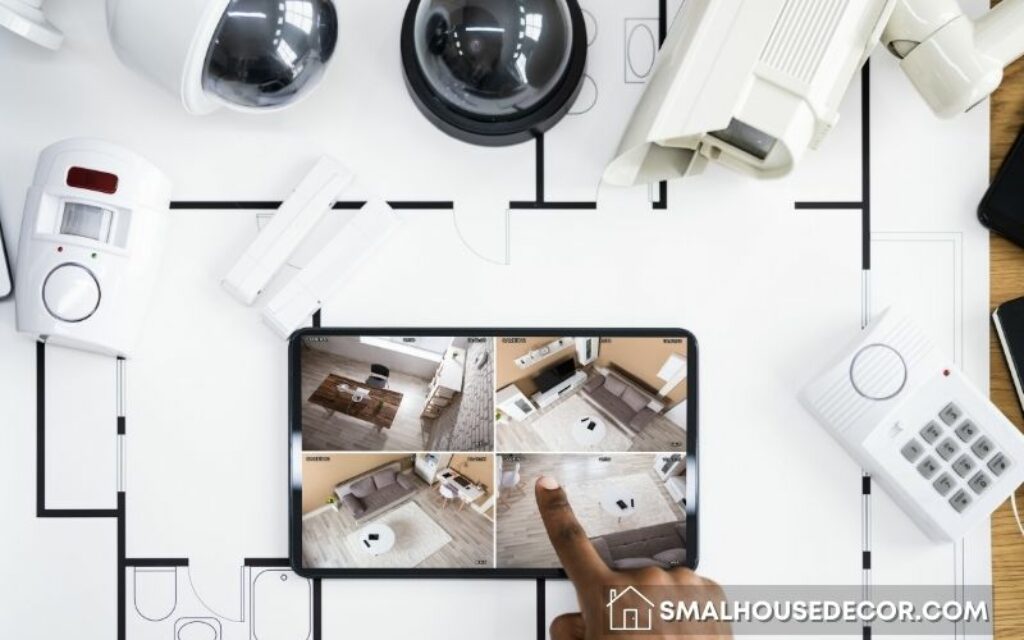The popularity of home offices reached its peak between 2020 and 2021. That was when the COVID-19 pandemic was wreaking havoc across the world. However, the COVID situation has gotten better now. Even then, it seems that the popularity of working from home and home offices, in general, is still intact and, in fact, growing.
Time Magazine goes as far as saying that the increasing number of people working from home was the most important trend in the US in 2022. The magazine also believes that the case will be the same in 2023 and beyond as well.
When working from home, most people focus on how to set up their home offices. They focus on the functionality, facilities, and aesthetics of their home office more than anything else. In the midst of all this, many forget to focus on the security aspect of their home-based working stations.
According to an FBI report, the US sees over 2.5 million burglaries every year. If your office is a part of your home, it, too, will be jeopardized in the event of a burglary at your place. You might end up losing important work documents and devices alongside your other home possessions.
Thus comes the need for you to beef up the security of your home office, and here are a few ways you can do that:

Limit Access to Your Office
Traditional keys and locks aren’t safe enough. They can still be broken. Besides, there’s always the risk of you losing your keys. For a home office, you need a modern lock and key configuration like an access control system.
Through access control installation on your home office’s front door, you can easily secure your workspace. It will allow you to gain access to the office using a key card, biometrics, etc. At the same time, the system will deny access to anyone without the proper access credentials.
According to The Flying Locksmiths, modern access control systems often have cloud-based access control software options. These allow for remote locking and unlocking of your office door.
You can also check who accessed your office and when, if you have multiple people with access credentials to the workspace. All these benefits make such access control systems the best option for your primary workspace security.
Invest in Robust Cybersecurity Measures
According to Norton, the US sees over 2,000 cyberattacks every day. If your home network falls victim to one of these attacks, your important office documents might be compromised as well. Therefore, investing in efficient and robust cybersecurity measures is a must for your home office.
Start by installing antivirus software on your devices. Then, focus on the network itself. A secure network is the foundation of a well-protected home office. Utilize WPA3 encryption for your Wi-Fi network, as it offers stronger security compared to its predecessors. You should also hide your network ID to prevent unauthorized users from seeing and accessing your network.
At the same time, you must always keep your router’s firmware updated. If your work requires sharing sensitive data over the internet, consider setting up a virtual private network (VPN). This will allow you to encrypt your online communications and keep your data private.
Physical Security Measures
Consider using security cameras and motion sensors to monitor your office area, deterring potential intruders. If your home office contains sensitive documents or valuable assets, invest in a fireproof and waterproof safe to keep them secure. The safe will prevent the theft of important documents and will also sound an alarm if someone tries to break into it.
Also, implement a clean desk policy, ensuring all confidential information is properly stored and locked away when not in use. Ensuring this will help you avoid misplacing your documents.
Data Backup and Storage
Loss of critical data can be catastrophic for your home office. Protect your work by implementing a comprehensive data backup and storage strategy. Cloud storage solutions offer the advantage of remote access and protection against physical damage to your equipment. Choose reputable and secure cloud storage providers with strong encryption protocols to keep your data safe from unauthorized access.
Secure Document Management
Managing physical documents securely is essential, especially if your work involves sensitive contracts, financial records, or personal information. Implement a systematic approach to document management, including proper labeling, storage, and disposal. As discussed earlier, invest in a good safe to store these physical file copies.
For digital documents, use encryption tools to protect sensitive files, and avoid storing confidential information on easily accessible cloud services. If you need to share documents with collaborators, use secure file-sharing platforms with encryption features.
Conclusion
While aesthetics and functionality are important, your home office must also be secure to deal with modern crime threats. Therefore, make sure you implement the security measures discussed above. In doing so, you can ensure the safety and security of your home office and work there in peace.